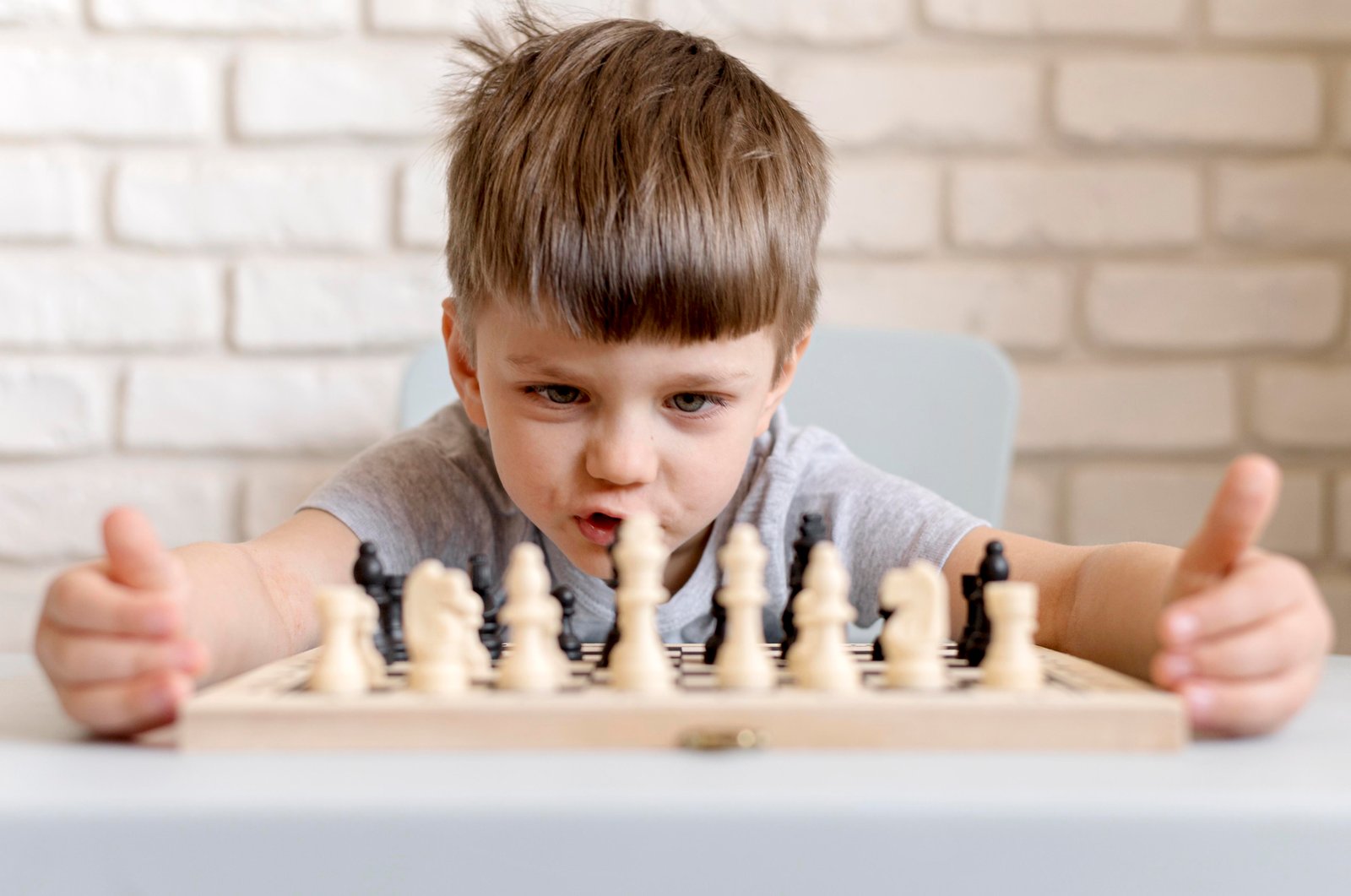
Education in STEM (Science, Technology, Engineering, and Mathematics) provides a foundation for children to define test cases regarding their success in academic endeavors. Across the globe, and particularly in India, parents and educators are seeking ways to foster logical reasoning, problem-solving, and creativity in young learners. Interestingly, one of the most effective and enjoyable ways to achieve this lies in an ancient game: chess.
It allows world chess-hall classes for the children of today to dream and escape from rigors, while imparting their actual abilities and kinship through shared experiences in epiphany-like occurrences. Let’s explore how chess nurtures essential STEM-related skills and how online platforms are shaping the next generation of innovative thinkers.
Being a chess player, play is not recreation. Every move must be analyzed, calculated, and planned, and in performing the same acts in science, technology, engineering, and math.
The following are the most significant contributions of chess to STEM skills development:
By strengthening these areas, chess serves as an interactive and enjoyable supplement to chess STEM education, providing real-world thinking skills that extend beyond the board.
The digital age has completely transformed the way children learn. Traditional chess clubs, while valuable, often limit access to those in specific locations or with flexible schedules. Online chess classes, however, remove these barriers, making quality instruction available to anyone, anywhere.
Through online platforms, children can learn from internationally certified instructors who specialize in teaching kids. This exposure ensures structured, age-appropriate learning that keeps young minds engaged.
Generally, online chess files come with specific puzzles, time limits, and training games as tactical features, in addition to replay capabilities, allowing students to analyze why they lost, thereby introducing the "test and refine" mechanism of STEM.
Online platforms enable learning at one's convenience, allowing for review to lessons at will, and facilitating a balance between chess and other school and family activities. Although parents are specific about evaluating flexibility in this area.
Most software available provides progress reports, analytics, and badges, which typically keep students interested. However, they also represent a way to track a quantifiable measure of achievement and improvement, particularly in reference to observing learning objectives in STEM-related subjects.
By combining gamified learning with structured education, online chess classes make cognitive development both fun and accessible.
Even as learning continues among children through play and learning, chess brings out the best in the play of childhood. Every move in chess involves a player's prediction about the future, analysis of alternatives, and testing of their ideas, embodying scientific reasoning and programming logic.
Children will learn to decompose a problem into its smaller parts while weighing the consequences of their actions, all the while considering alternative strategies, as well as stand-out uses of mathematics, coding, and robotics, when they play chess.
This is where chess STEM education truly helps. It effortlessly and seamlessly connects creativity and logic, further underscoring both academic and social constructs.
Chess is an intellectual game that fosters character development. From this perspective, resilience and courage are assets for the brightest future when faced with innovations and competition, where judges are neither patient nor foolish.
Conversely, practice can always value improving their quiet, considerate, evaluative, and somber cognitive academic environments in which children will internalize behaviors beneficial to their future professional and personal pursuits.
A variety of programs to serve the purpose of making chess learning and STEM efficient for a child. Consider a few that should meet the following criteria:
A holistic platform goes far; thus, education should extend well into strategy, creativity, and cognitive flexibility. These things are the way to life lessons that high grades, certificates, or praise from esteemed institutions can not provide.
At Chessbrainz, we view chess as a stepping stone to enhanced thought processes, increased focus, and confident problem-solving skills. As a global platform offering online chess classes, we strive to nurture young minds through structured and engaging lessons.
We make it our mission to ensure that chess can be an engaging, purposeful, and accessible pursuit for all. The presence of internationally certified coaches, engaging tools, and customized progress tracking transforms every Chessbrainz session into a positive growth experience.
The programs strike a delicate balance between creativity and structure, which best define chess STEM education in the U.S. and around the globe. Whether your child is a beginner or a competitive player, Chessbrainz provides a nurturing environment for developing critical thinkers and lifelong learners.
Contact Chessbrainz and learn about our programs to find out how chess can spark curiosity, confidence, and academic brilliance in your child.
An online chess class enhances logical reasoning, pattern recognition, and problem-solving: three primary cognitive abilities that align directly with STEM learning principles.
Children begin learning chess as early as five years old, and under instructional guidance, will begin to develop concentration, model thinking, and decision-making skills.
Yes, chess strengthens memory, focus, and analytical thinking, helping students perform better in subjects like mathematics, science, and reading comprehension.
Chessbrainz offers certified instructors, structured lessons, and interactive tools that blend fun with education, promoting long-term skill development globally.